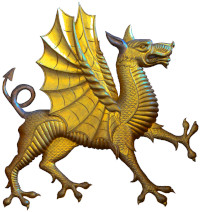I know almost nothing about Phillip K. Dick. I have read a handful of his novels and perhaps a dozen of his stories. My host in Portland asked me to read and annotate the massive book which is The Exegesis of Phillip K. Dick. What follows are my impressions, entry by entry, making no claim to have any particular insight other than the fact that I share a similar word count and age as a writer when he passed on in 1982 at age 54, having written over 50 books, with his exegesis running to well over a million words. This reviewer’s only unique perspective is limited to my age at this reading, being 55 and the fact that both Dick and I were unusually prolific writers whose focus was science fiction.
Dick writes, apparently to himself, in reference to a revelation of what he believes to be a divine trinity structuring the course of his temporal existence, which he does not directly reference until paragraph 9 of 11, as if reminding himself that others might also find his experience of interest:
“But what is most telling is that in March, at the height of the ‘Holy Other’ pouring into me, when I saw the universe as it is, I saw as the active agent, a gold and red illuminated-letter like plasmatic entity from the future, arranging bits and pieces here: arranging what time drove forward. Later I concluded that I had seen the Logos.”
4:1 seems to have been written in April, May or June of 1974.
Impressions of Phillip K. Dick’s conclusions presented in 4:1 are:
-Profoundly gnostic
-The Logos, or universal mind, is divided into three distinct fields, being
-Time, the causal spark and driving force which propels life and consciousness forward but also traps it in a lineal plane
-The Logos, specifically the informative pressure operating outside the field of time but extending into it as an alien presence or supratemporal divinity; Logos being the hermetic usher of consciousness or escort of souls
-The Holy Spirit, the receiver of souls, awaiting to the right of Time, as a weak field, able to project backwards in Time within unspecified limits, at once within and beyond Time’s temporal interior, the negative terminal acting in reverse of causality—or Time.
Dick maps this divine trinity in less direct terms, with references to catholic and Christian theology as well as physics and quantum mechanics and pre-Christian hermetics to achieve a triangulation in his mind. He seems to be wedded to Aristotle, informed by Socrates and tempted by Plato and his forms, choosing to converse most directly in ideas according to their ancient terms.
Night City: The Short Fiction of James LaFond: 2015-16











